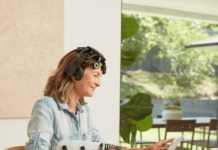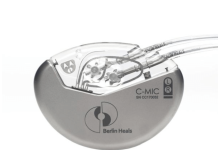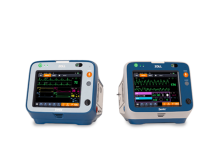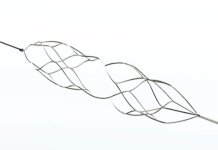Sight Sciences revealed additional long-term data supporting its TearCare device for the treatment of dry eye disease, indicating it could be used as a primary or secondary treatment.
The data is from Sight Science’s SAHARA trial – a study evaluating TearCare in patients previously treated with Allergan (AbbVie’s) Restasis eyedrops (cyclosporine ophthalmic emulsion). TearCare, which is already cleared by the US Food and Drug Administration (FDA), uses localised heat therapy via non-surgically affixed electrothermal devices. Restasis, meanwhile, is the current standard treatment for dry eye disease.
Related: Vitestro’s robotic blood drawing device meets trial endpoints
Sight Sciences touted positive results from the first six months of the trial back in December 2023. The results, published in Clinical Ophthalmology, demonstrated superiority of the device over the eyedrops, as measured by tear break up time and tear stability.
Meibomian gland dysfunction is the primary cause of dry eye disease, whereby a lack of secretion disrupts the tear film lipid layer.
Now, in a further follow-up six months on, the US-based eye care specialist has said clinically meaningful improvements in the signs and symptoms of dry eye disease persisted.
Sight’s randomised control trial involved 345 subjects at 19 sites in the US. In Phase 2 of the SAHARA trial, 163 patients who had been randomised and treated with Restasis during phase 1 switched to the TearCare group and followed for six months through month 12.
Tear break up time was the highlight of the data – exhibiting a statistical improvement with persistence at month twelve compared to baseline six months prior.
Sight Sciences will now progress the trial into a third phase, which will include 2-year data.
Sight Sciences’ CEO Paul Badawi said: “[The data] shows that effectiveness appears to be the same whether or not a patient has had prior treatment with Restasis, demonstrating that similar results could be expected when TearCare is used as a primary or secondary treatment for dry eye disease.”
It has been a busy year for Sight Sciences so far. In April, the company won a patent infringement case against Alcon and its minimally invasive glaucoma surgery (MIGS) device, the Hydrus Microstent. Sight Sciences was awarded $34m as a result of the positive verdict. In the same month, it unveiled positive two-year data from its MIGS device, the OMNI surgical system.




